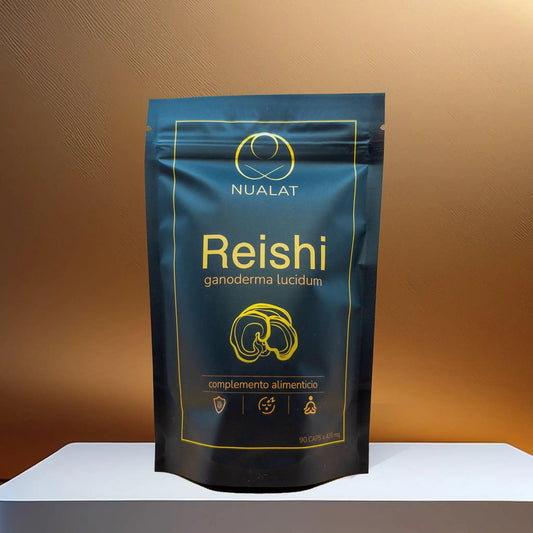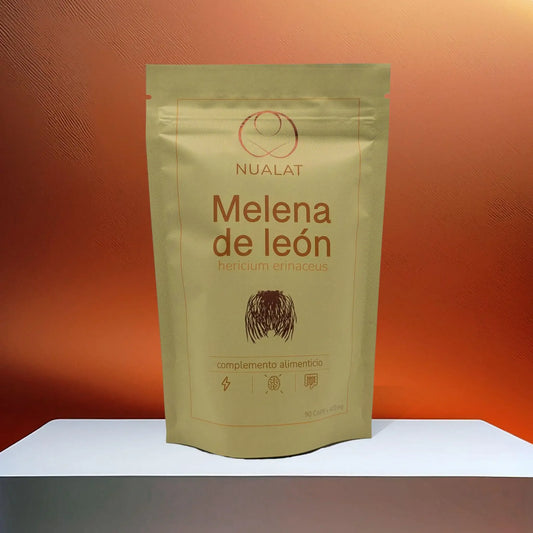
The Benefits of Medicinal Mushrooms for the Immune System: A Science-Based Approach
Share
The human immune system is a complex and multifunctional network that requires a precise balance to function effectively. This balance allows the body to defend itself from external threats, such as viral or bacterial infections, while avoiding self-destructive responses. In this context, medicinal mushrooms have gained scientific attention due to their immunomodulatory properties, which not only stimulate the body's natural defenses, but also regulate excessive inflammatory responses.
Bioactive compounds in mushrooms and their action on the immune system
The impact of medicinal mushrooms on the immune system is mainly due to the presence of unique bioactive compounds, such as beta-glucans , triterpenes and lectins , which act directly on immune cells. These molecules are not only recognized for their immunomodulatory action, but also possess antioxidant, anti-inflammatory and potentially anticancer properties.Beta-glucans : These long carbohydrate chains, present in the cell walls of fungi, are able to activate specific receptors on macrophages and dendritic cells, such as Dectin-1 and TLR receptors. This activation triggers a series of responses including phagocytosis of pathogens, cytokine production, and stimulation of T lymphocytes and natural killer (NK) cells (Brown & Gordon, 2003).
Triterpenes: Found primarily in mushrooms such as Ganoderma lucidum, triterpenes have potent anti-inflammatory properties that can modulate the production of pro-inflammatory cytokines such as TNF-α and IL-1β (Wachtel-Galor et al., 2011). Furthermore, they have been shown to inhibit tumor cell proliferation and reduce oxidative damage in immune tissues (Paterson, 2006).
Lectins : These proteins present in several medicinal mushrooms have the ability to bind to specific carbohydrates on the surface of cells, which may influence the activation of T lymphocytes and the regulation of adaptive immune responses (Liu et al., 2007).
Ganoderma lucidum: the mushroom of longevity and its impact on the immune system
Known as Reishi in traditional Asian medicine, Ganoderma lucidum is one of the most studied medicinal mushrooms today. The polysaccharides and triterpenes present in this mushroom have shown immunomodulatory properties both in preclinical models and in early clinical studies (Gao et al., 2003).Ganoderma extracts have been shown to increase the activity of NK cells, essential for fighting viral infections and tumor cells (Chang et al., 2009) . Furthermore, they have been found to regulate the balance between pro-inflammatory and anti-inflammatory cytokines, a crucial aspect for managing autoimmune diseases or chronic inflammatory conditions (Sliva, 2006) . This mushroom also interacts with the gut-immune axis by acting as a prebiotic, favoring the proliferation of beneficial bacteria in the intestinal microbiome (Zhu et al., 2015) .
Adaptogenic mushrooms: benefits in regulating the immune response
Adaptogens are natural substances that help the body adapt to stressful situations and maintain internal balance. Medicinal mushrooms, such as Ganoderma lucidum, are considered adaptogens due to their ability to adjust the immune response to the body's needs. This means that they can stimulate the immune system in case of infections or suppress excessive responses in autoimmune or inflammatory conditions (Panossian et al., 2010).
A study published in the International Journal of Medicinal Mushrooms found that beta-glucans from adaptogenic mushrooms not only enhance the ability of immune cells to recognize and eliminate pathogens, but also contribute to reducing immune fatigue associated with chronic stress (Vetvicka et al., 2011) .
The intestinal microbiome and medicinal mushrooms
An innovative aspect of medicinal mushroom research is their interaction with the gut microbiome. Beta-glucans and other polysaccharides act as prebiotics, feeding beneficial bacteria that play a crucial role in regulating immunity. Since a large portion of the body’s immune cells reside in the gut, this interaction between mushrooms and the microbiome may be key to explaining their broad immunological benefits.
Furthermore, extracts from mushrooms such as Ganoderma lucidum have been shown to reduce intestinal permeability, a condition that compromises the intestinal barrier and allows pathogens and toxins to enter the bloodstream. This protective effect on the intestinal barrier further reinforces the impact of medicinal mushrooms on immune health.
Clinical applications of medicinal mushrooms and future potential
The growing interest in medicinal mushrooms has led to multiple clinical studies to explore their efficacy in various conditions. From immune support during chemotherapy treatments to enhancing immune response in chronic viral infections, medicinal mushrooms are proving to be a valuable tool in integrative medicine (Jin et al., 2012).However, it is important to underline the need for standardized and quality extracts, as the concentration of bioactive compounds can vary widely between products. Future research should focus on determining optimal doses, synergistic combinations, and specific applications of each mushroom to maximize its effectiveness.
In conclusion, medicinal mushrooms represent a rich and promising source of immunomodulatory compounds that can complement traditional health strategies. As science advances, their role in immune support and regulation is likely to continue to gain relevance in the realm of modern medicine.






